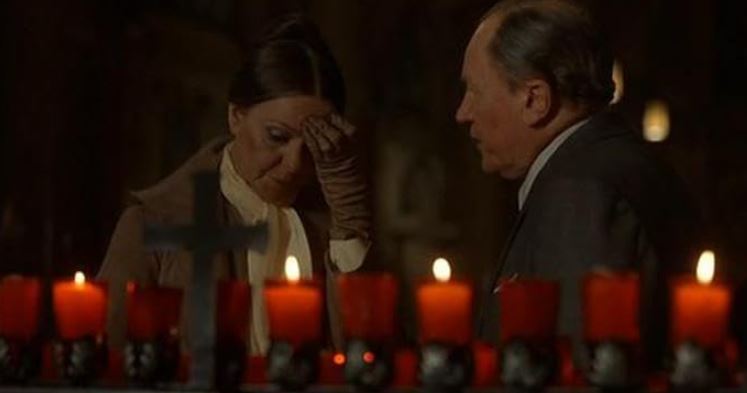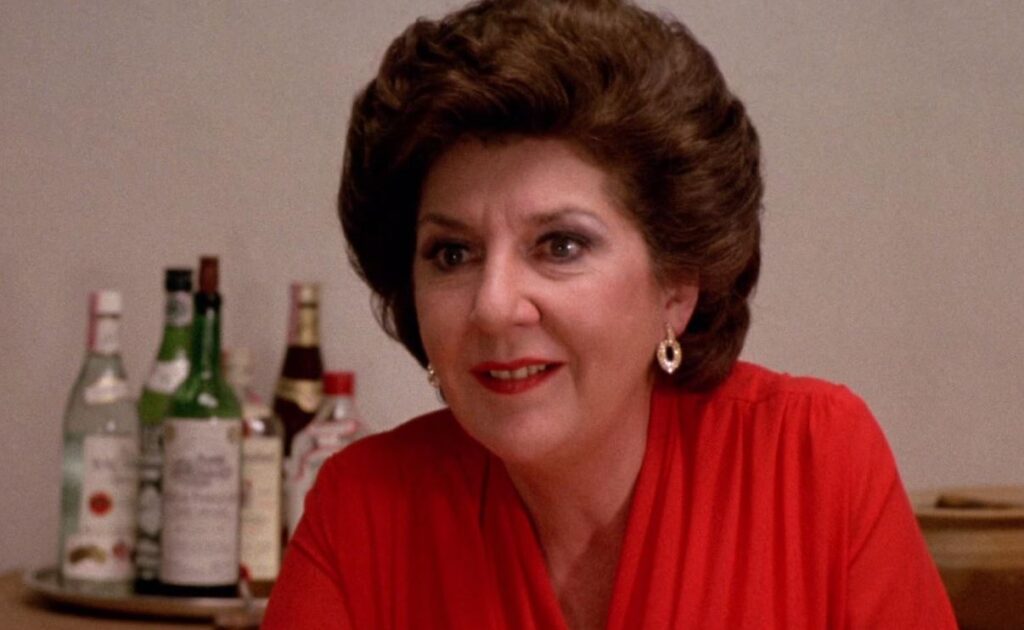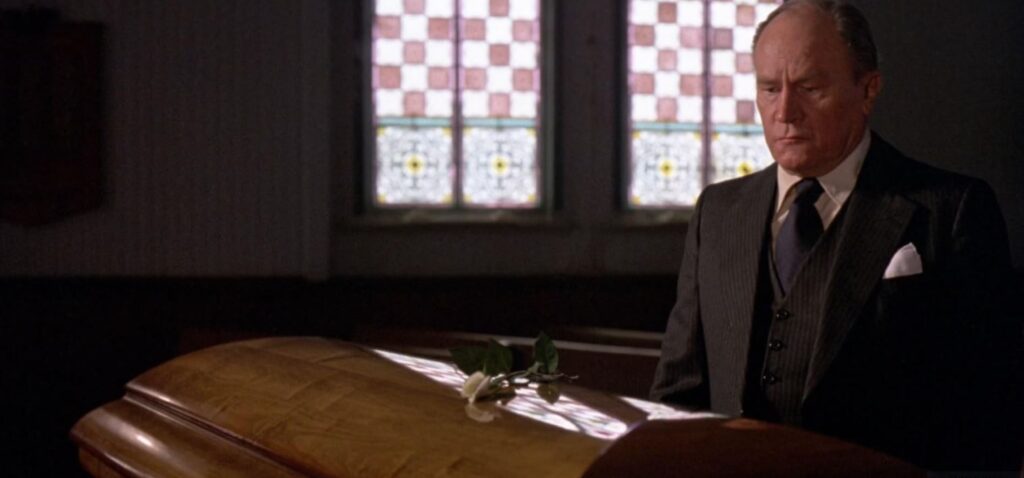
“I had dropped out of law school when I met Eve. She was very beautiful, very pale and cool in her black dress with never anything more than a single strand of pearls. And distant. Always poised and distant. At the time the girls were born it was all so perfect, so ordered. Looking back, of course, it was rigid. The truth is she created a world around us that we existed in, where everything had its place, where there was always a kind of harmony. Great dignity. I will say, it was like an ice palace. Then suddenly one day, out of nowhere, an enormous abyss opened up beneath our feet, and I was staring into a face I didn’t recognize.”
And so begins Woody Allen’s Interiors, one of cinema’s boldest declarations yet for the embrace of unchecked hedonism in the face of cerebral detachment. Where we are encouraged – required, even – to reevaluate everything, especially our human connections, at the first sign of mortality’s sting. Some, the more traditional sort, believe in forever dancing with the one that brung you, even at the expense of your sanity. Arthur, on the other hand, rightly – and reasonably – asserts that once you’ve done your duty (raised the kids, paid the bills, kept a roof over everyone’s head), you’re entitled to a little down time. On the beach, if necessary. And yes, that means setting out a new towel if you so choose. Even throwing the old one in the ocean. Loyalty, as they say, is for pigeons and Catholics.

I can hear it now: Arthur is your typical misogynistic creep, fearing death so blindly that he thinks nothing of blasting the family apart so he can drive a younger, faster model around the block for a spin. Only it’s far deeper than that. After all, he’s trading Geraldine Page (Eve) for Maureen Stapleton (Pearl) here, so spare me the feminist diatribes. Hell, the former is arguably more attractive than the latter. Certainly with her hair down. No, it’s as simple as what he states: I just want to relax. Debating the finer points of Impressionism gets the juices flowing in your twenties, but once the fifties hit, just let me enjoy my coffee and crossword without you parsing every last fucking word from a conversation we had 11 months prior. And god forbid we break ranks and laugh a little. Eve’s the kind of woman who would ban jokes before dinner because they’d distract from the table settings.
If Arthur is insensitive to the consequences of his actions – and perhaps he is, given Eve’s fragile mental state – please explain why this man, any man, must endure humorless, sackless passivity from nuptials to last rites as a demonstration of his fitness as a husband. Or father. Or human fucking being. Who on earth declared for all time that there’s a shred of nobility in suffering? If we’re lost, or unhappy, or even mildly frustrated, shouldn’t anyone of even semi-coherence consider an escape hatch? “Working on it,” always the mantra of the slave, seems to suggest that love is (and should be) constant, unrelenting – you guessed it – work. Requiring therapy, more therapy, and a healthy supply of self-help tomes. Arthur isn’t having it. Instead, it’s a woman in red who can dance and sing and perform card tricks while Eve is off rearranging her vases. Pearl isn’t so much a vulgarian as a woman with a beating heart.

Arthur endures, then, because he knows, deep in his marrow, that the true meaning of life isn’t preservation, but moving on. Tossing aside what ails us in favor of uncharted waters. I’ve always believed that we should change relationships – not just spouses, but kids, friends, even parents – every few years or so, just to keep things spicy. At minimum, we’d take a bigger bite out of life. And since it would be mandated, like seat belts or car insurance, no feelings would be hurt, and no one would throw accusations at you like poison darts. We’d end up more evolved, more spirited, and perhaps – just perhaps – we could see that given our single spin on this planet of ours, the true measure of a man isn’t his sense of obligation, but rather his willingness to embrace the chaos. That the man of 50 being the man of 15 is both depressing and ill-advised. A living death, rather than the rebirth we’d been promised.
For Matt’s full review of Interiors, click here
Leave a Reply